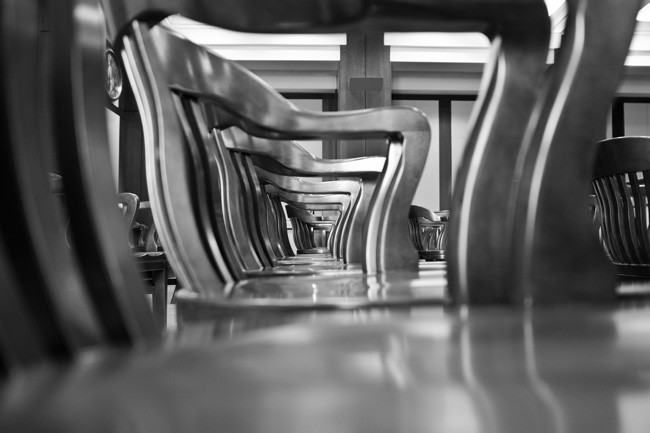
A commission established by Supreme Court Chief Justice Jorge Labarga began a year-long effort Friday to make civil justice services more accessible to both low- and moderate-income Floridians.
The 27-member Florida’s Commission on Access to Civil Justice won’t create anything new but will build on what other states with limited resources like Florida’s are already doing to keep individuals from having to navigate the complex court system on their own, Labarga said.
“This issue is not just a legislative issue, not just an executive issue, it is a societal problem,” Labarga said at the commission’s first meeting in Tallahassee on Friday. “And it is something society in general needs to fix.”
People representing themselves in court are often confused by simple paperwork or stumble over writing a legal brief, county clerks told the panel.
The commission will also explore the possibility of establishing public-private partnerships with businesses to help offset the costs of legal services.
“Employers provide people with health insurance. Well let’s provide them with legal insurance,” Labarga said. “There is such a thing and it’s very inexpensive. Little things like that help take the stress off of what people are going through.”
An interim report is due in October and the final product will be released in 2016.
Making the courts more accessible to all Floridians is a goal that Labarga announced in June when sworn in as the state’s 56th chief justice.
One of the things the panel will have to figure out is how to provide additional funding for civil legal aid without simply asking for money from state legislators. Gov. Rick Scott has red-lined from the state budget such allocations each year since he assumed office in 2011.
Fleming Island Republican Sen. Rob Bradley, an attorney who is a member of the commission, said there remains a role for government funding, but “it needs to be part of a larger plan.”
Gregory Coleman, president of The Florida Bar and a member of the commission, estimated that about 60 percent of moderate-income families now struggle to pay for civil legal services.
“The folks that are making $40,000, $50,000 a year, supporting a family of four, if they have to get divorced, they can’t afford a lawyer at $50, an hour, $25 an hour,” Coleman said.
Legal-aid lawyers currently handle tens of thousands of cases a year, with many of the cases dealing with family issues, including divorce and child custody, or housing issues, such as foreclosures.
Scott’s veto of $2 million for legal services for the poor last year came as former Florida Supreme Court Justice Raoul Cantero and attorneys for the poor pushed an effort to increase Florida Bar dues by up to $100 to help fund legal-service groups across the state.
The state Supreme Court heard arguments Dec. 2 on raising a $265 cap on the Bar’s annual membership fees. The Florida Bar has come out strongly against the proposal, arguing that the legal system needs a longer-term solution to pay for services provided to the poor.
–Jim Turner, News Service of Florida





























Lancer says
So…businesses who provide jobs are now responsible for “legal aid” as well? At what point do people start understanding that these costs we continuously heap on the backs of employers are putting them out of business?
The predominant and overwhelming type of business that employs the most is…SMALL BUSINESS. Now…I realize that people don’t “care” about businesses these days. That business is a boogeyman and are only run by evil, greedy rich people. However, in reality…that is not the case. Businesses are run, predominantly, by hard working people who risk their own time and resources to provide for themselves.
The more government mandated CRAP you put on the backs of businesses, the more advantages you provide to “Big Business”, that is constantly harped against. The more government mandated CRAP you place on small business the less of a chance these businesses have of staying open.
WHAT WE REALLY NEED:
What about serious tort reform? How about instituting a loser pays system? Wait a sec…it’s trial lawyers who overwhelmingly support democrats with vast campaign contributions who prevent this.
M. Phoenix says
If it had not been for Legal Aid I don’t know how I would have survived my divorced. I would have lost my child among other things. If funding is cut, this will feed into an even larger problem than the burden on small businesses. It feeds into our our community with foreclosures (homelessness), women and children who can not otherwise defend themselves, are now on the streets and then the burden is on the county and state with the welfare program to help them. That’s just a small part of the ripple affect I see that adds to our already corroding social issues in this county.